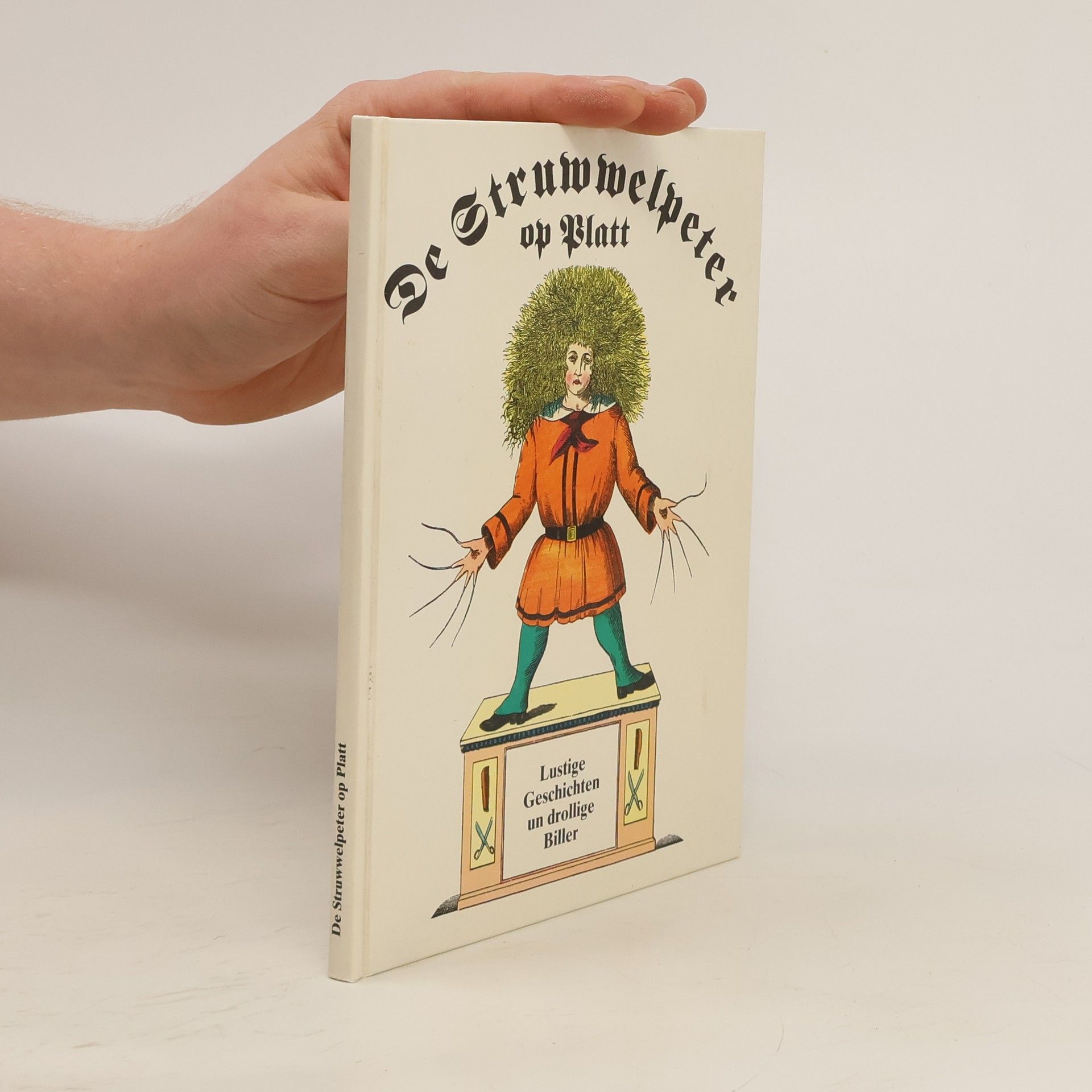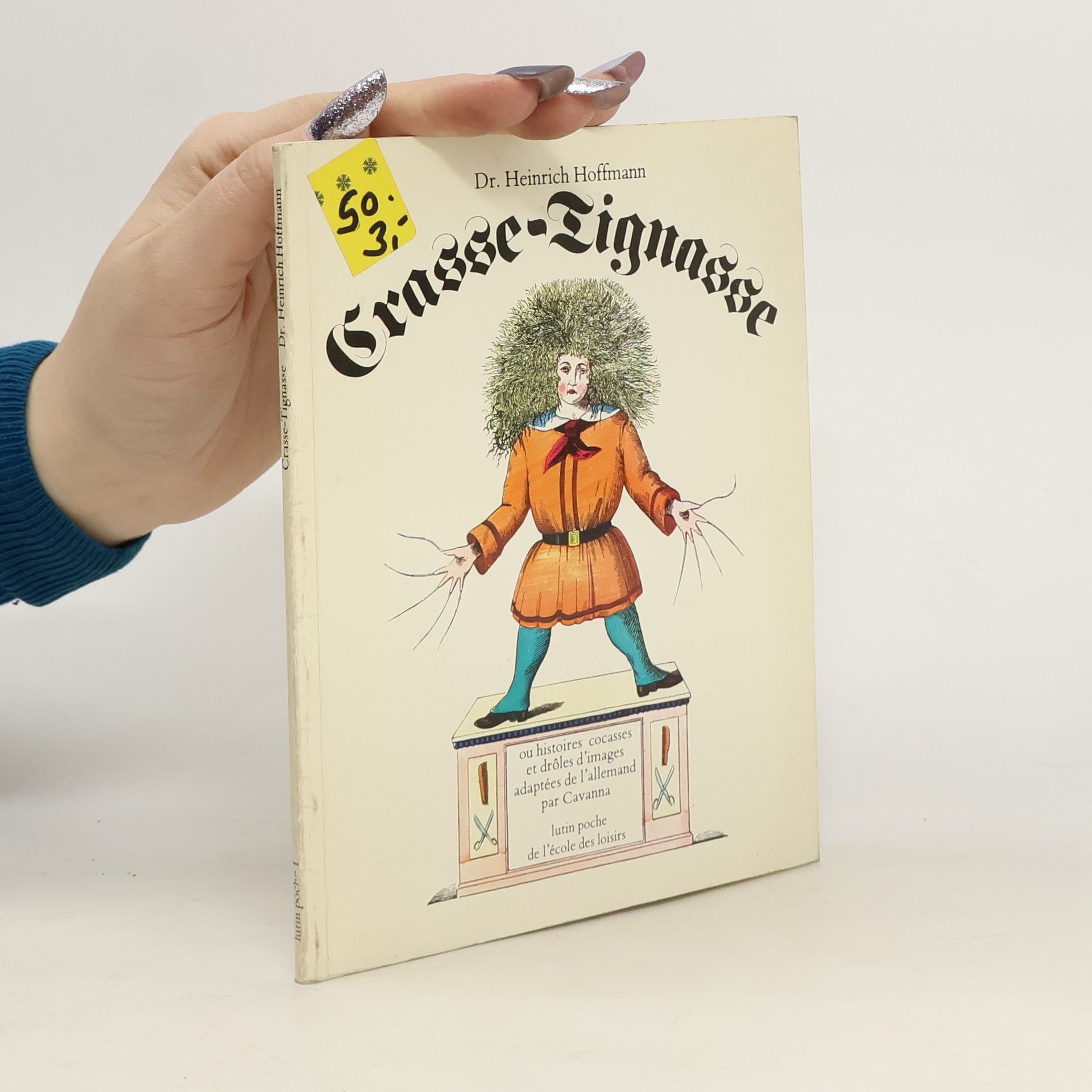First published in 1845. Struwwelpeter (variously translated as "slovenly" or "shock-headed" Peter) has become widely recognized as one of the most popular and influential children's books ever written. Heinrich Hoffmann was a Frankfurt physician. Unhappy with the dry and pedagogic books available for children at the time, he wrote and illustrated Struwwelpeter as a Christmas present for his three-year-old son. The book relates in verse and pictures the often gruesome consequences that befall children who torment animals, play with matches, suck their thumbs, refuse to eat, fidget at meals, etc. Written in rhyming couplets and illustrated by the author, the book was an immediate success. It has since gone through hundreds of editions and been published in almost every European language.
Heinrich Hoffmann Libros
El psiquiatra alemán Heinrich Hoffmann es célebre por sus obras ilustradas para niños, que a menudo exploraban las consecuencias del mal comportamiento con una distintiva mezcla de humor y mensaje moral. Sus escritos, frecuentemente publicados bajo diversos seudónimos, reflejan un profundo interés en la psique infantil, caracterizados por un estilo visualmente llamativo. Más allá de sus actividades literarias, Hoffmann también fue un psiquiatra en ejercicio, lo que le permitió profundizar en las complejidades de la mente y el comportamiento humanos. Su obra ofrece una fascinante intersección entre el arte, la psicología y el desarrollo infantil.






Featuring vibrant illustrations and a high-quality English translation, this classic children's book by Heinrich Hoffmann captivates young readers with its engaging stories and moral lessons. First published in 1845, it remains a beloved staple in children's literature, showcasing a variety of whimsical characters and cautionary tales that emphasize the importance of good behavior. Its enduring popularity highlights its impact on generations of children and parents alike.
Tales in verse about some naughty children and the fates that befall them when they misbehave.
Delving into the whimsical yet cautionary world of misbehaving children, this classic features ten rhyming tales accompanied by striking illustrations. Each story, such as "The Dreadful Story about Harriet and the Matches" and "The Story of Little Suck-a-Thumb," showcases the outrageous consequences of naughty behavior. While intended as moral lessons, the humorous and alarming narratives are likely to evoke laughter from both children and adults alike, making it an entertaining read for families.
Tales in verse about some naughty children and the fates that befall them when they misbehave.
Der Euro-Struwwelpeter
in 10 Sprachen
Dix petits contes en vers décrivant les principaux défauts des enfants et leurs funestes conséquences : Pierre refuse de se laisser peigner et de se laisser couper les ongles ; Paulette touche aux allumettes et se brûle ; Trois enfants se moquent d'un enfant noir et sont plongés par punition dans un encrier...
S Hitlerem v Polsku
- 92 páginas
- 4 horas de lectura
Publikace, kterou držíte v rukou, zobrazuje nejen německý vojenský úspěch, ale zároveň také vypovídá o přízemnosti německé propagandistické mašinérie. Účelem této obrazové publikace mělo být zdůvodnění rozpoutání války, byla zaměřena nejen na domácí, ale i mezinárodní veřejné mínění. Výběr fotografií a komentáře k nim však ukazují, že německá propaganda nedokázala v několika případech udržet přehánění a falšování v rozumných mezích, čímž kromě pompéznosti získala v některých případech i nádech směšnosti. Nakladatelství se rozhodlo vydat tuto publikaci jako dokument doby, s původními texty, bez oprav, úprav a vysvětlování. Čtenář díky ní má možnost srovnat si propagační interpretaci oněch historických událostí se známou realitou.



